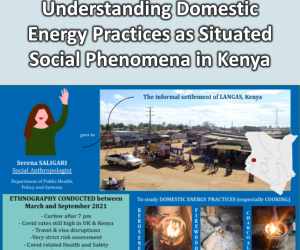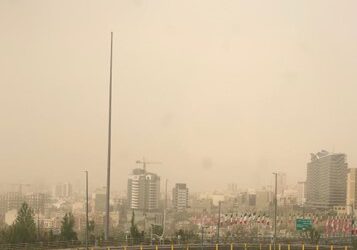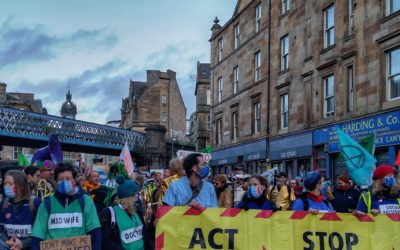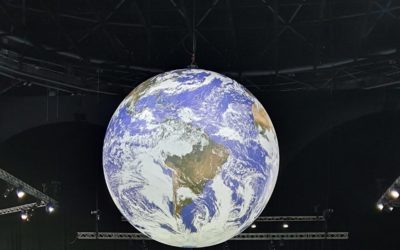Reflections following the first two parts of Looking North – a series of conversations between the worlds of art, literature, natural science and ecological conservation.




Blog
Understanding Domestic Energy Practices as Situated Phenomena in Kenya
The process of transitioning to cleaner fuel sources is often portrayed as a simple linear progression. In the promotion of such transitions, economic factors regularly take priority. This piece, based on fieldwork in rural Kenya, challenges this singular approach. Energy sources, especially those relating to domestic use, may be socially embedded, making the decision to transition to alternative sources more complex than a simple economic choice.
New York City’s War on Pizza? Pollution and Politics in the Age of Outrage
by James Crooks
Outrage discourses have become increasingly commonplace in all forms of media. Recently, proposed regulations in New York City regarding wood- and coal-burning cook stoves – dubbed by some ‘New York’s War on Pizza’ – have been the focus. What can we learn from this and how can this episode inform our own communications strategies when promoting complex or nuanced climate or energy-related actions?
Tehran: The Petroleum Capital
Since the beginning of the 20th century, Tehran’s development has been closely linked with the oil industry. However, this connection to oil and petroleum culture has created its own set of challenges for the country’s ability to moving toward renewable energy practices.
From the Roots Up: A Summer of Research on the St Andrews Forest
by Victoria Lee
With concrete goals and a focus on community planning, the St Andrews Forest is shaping up to be a great climate action initiative. But one vital next step in its development is identifying specific data that need to be collected from forest locations in order to quantify progress towards its goals of carbon sequestration, supporting biodiversity, and ecosystem services. Through the University’s 2022 Summer Teams Enterprise Programme (STEP), a team of seven St Andrews undergraduate students from across degree programmes and with diverse backgrounds were brought together to create a draft protocol for assessing the benefits of the Forest programme.
Natural Gas in the UK, Part 2: Potential Winter Blackouts and the Grid
by Sean Field
In Part 2 of this series, Dr Field explains how the UK’s energy crisis is a dual predicament: an energy price crisis, and an energy supply crisis. The UK’s electrical grid is balanced on the wholesale market for natural gas; as wholesale prices rise, people are pushed into energy poverty. Building on Part 1, he demonstrates how natural gas dependency and insufficient UK natural gas storage capacities are threatening electricity blackouts this winter (as well as a crisis of heating), concluding that this crisis was foreseeable and avoidable.
The energy ethics of understanding our place in the Universe
Professor Vivienne Wild reflects on the impact which studying the far-reaches of space has on our own world. What is the climate-cost of our interest in our Universe?
Energy Harvesting, Internet of Things and Sustainability: A Fascinating Trio
The energy trilemma describes the difficulty in achieving a coherent balance of clean, affordable, and secure energy. Improvements in one factor in the triangle distorts the other components. In this blog post, I explore how ‘smart technologies’, connected by the internet and powered by new ambient energy harvesting devices, can be vital to overcoming the energy trilemma and to achieving energy sustainability.
What now? Reflections from a climate activist on COP26
by Léa Weimann
The COP26 has been a much-anticipated conference coined as humanity’s “last best chance” to limit global warming to 1.5°C and keep the ambition of the Paris Agreement alive. It has been five years since the Paris Agreement. Climate-Change-related weather events and impacts around the world are accelerating in frequency and severity. The global trajectory of CO2 emissions continues to be on the rise and so is climate anxiety, especially in young people and fellow activists such as myself.
How to do better: Climate ambitions and energy transitions at the COP26
Dr Mette High reflects on her experience as a delegate representing the University of St Andrews and the Centre for Energy Ethics at COP26 in Glasgow









